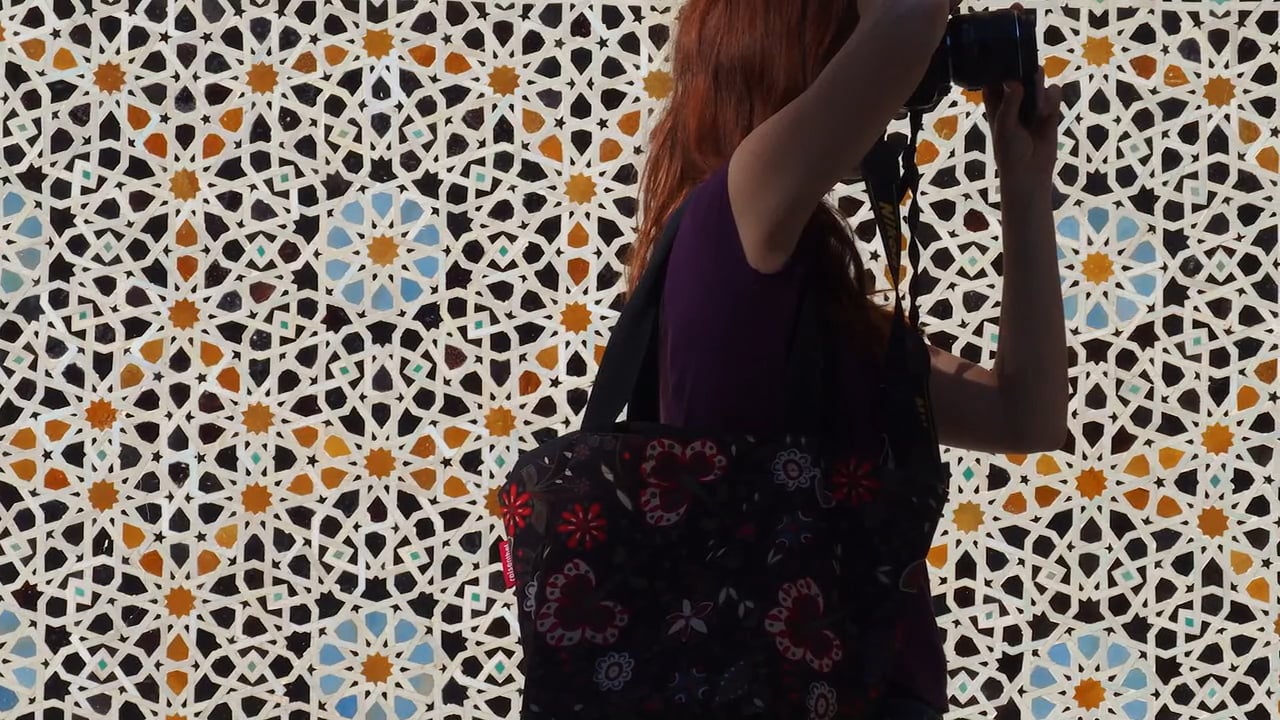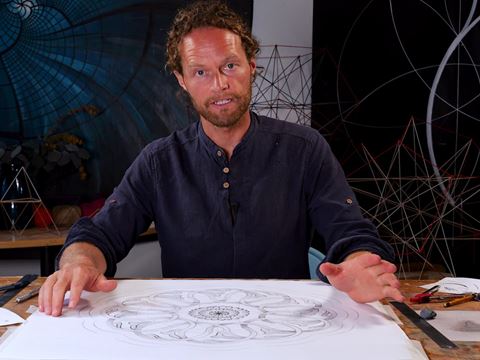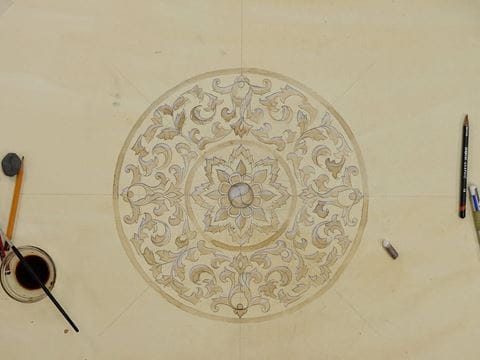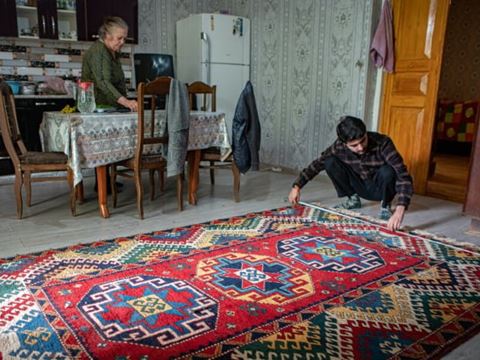
This content is blocked
You need to give permission.
How to Make Islamic Geometric Patterns
Duration:6min
How do you make islamic geometric patters? In 2015 AramcoWorld editor Richard Doughty joined a workshop in Fez, Morocco to learn firsthand from the city’s great works, starting with a straightedge, a compass, a pencil and paper. (And an eraser.)
During the week-long workshop some 25 students learned the art of Islamic geometry through the inspiration of the of the walls, windows, door and art patterns in the madinah, or walled old city.
Nestled in a valley crowned by gentle hills, Fez is one of the Islamic world’s great historic centers of the art of geometrically based patterns executed in tile, plaster, stone, wood and metal. Like all such patterns, those that adorn the mosques, madrassahs (schools) and sabeels (fountains) of Fez have their origins in simple, universal geometry that— through practice and elaboration—artists and craft workers developed into celestially intricate masterpieces. These adorn Fez in such numbers that the entire madinah is a UNESCO World Heritage Site.
Read the story here.
During the week-long workshop some 25 students learned the art of Islamic geometry through the inspiration of the of the walls, windows, door and art patterns in the madinah, or walled old city.
Nestled in a valley crowned by gentle hills, Fez is one of the Islamic world’s great historic centers of the art of geometrically based patterns executed in tile, plaster, stone, wood and metal. Like all such patterns, those that adorn the mosques, madrassahs (schools) and sabeels (fountains) of Fez have their origins in simple, universal geometry that— through practice and elaboration—artists and craft workers developed into celestially intricate masterpieces. These adorn Fez in such numbers that the entire madinah is a UNESCO World Heritage Site.
Read the story here.
You may also be interested in...

Art of Islamic Patterns: Rüstem Pasha Rosette Part 2 – Biomorphic Design
Arts

Art of Islamic Patterns: A Southeast Asian Rosette Part 2
Arts

Weaving an oriental carpet tradition in Georgia
Arts
In Georgia Borchalo rugs are making a tentative comeback amid growing recognition of the uniqueness of ethnic Azerbaijani weaving. There’s hope that this tradition can be saved. Video by Pearly Jacob and Robin Forestier-Walker